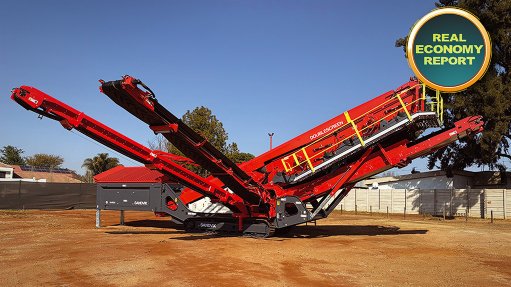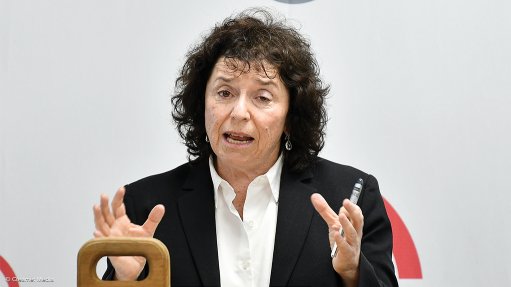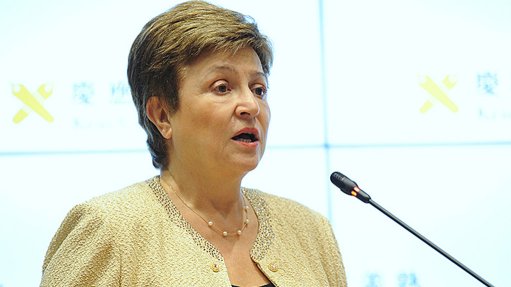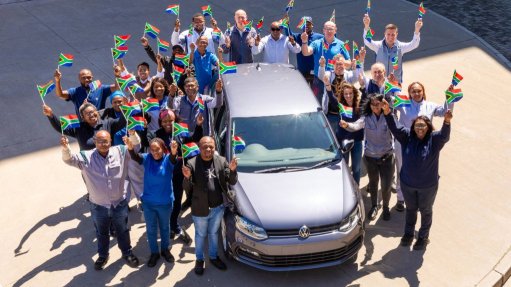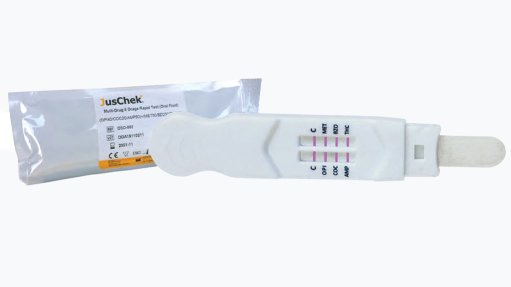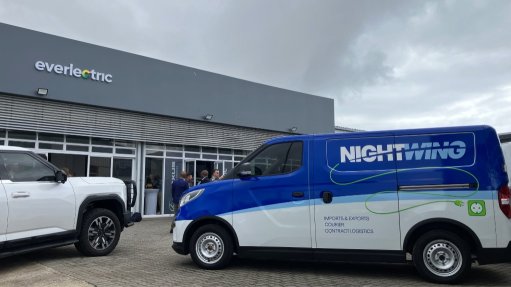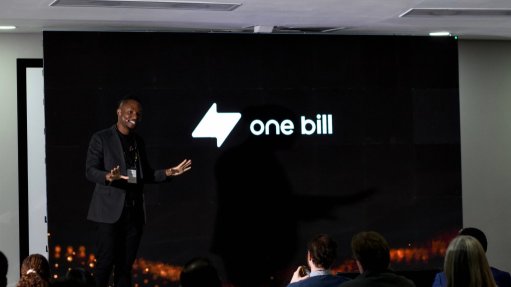DRS, GE Healthcare unveil dedicated CT/PET scanning facility in Alberton

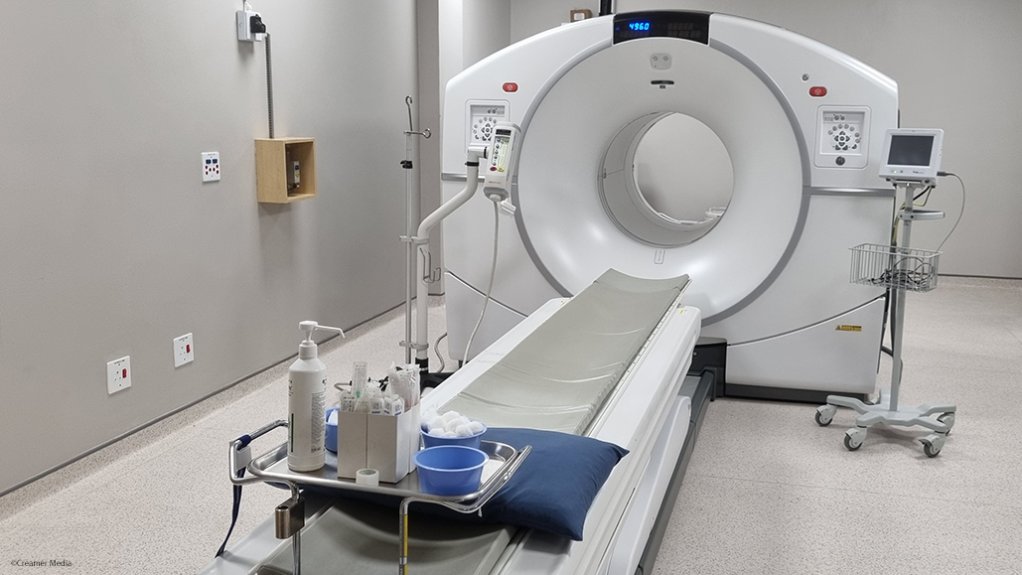
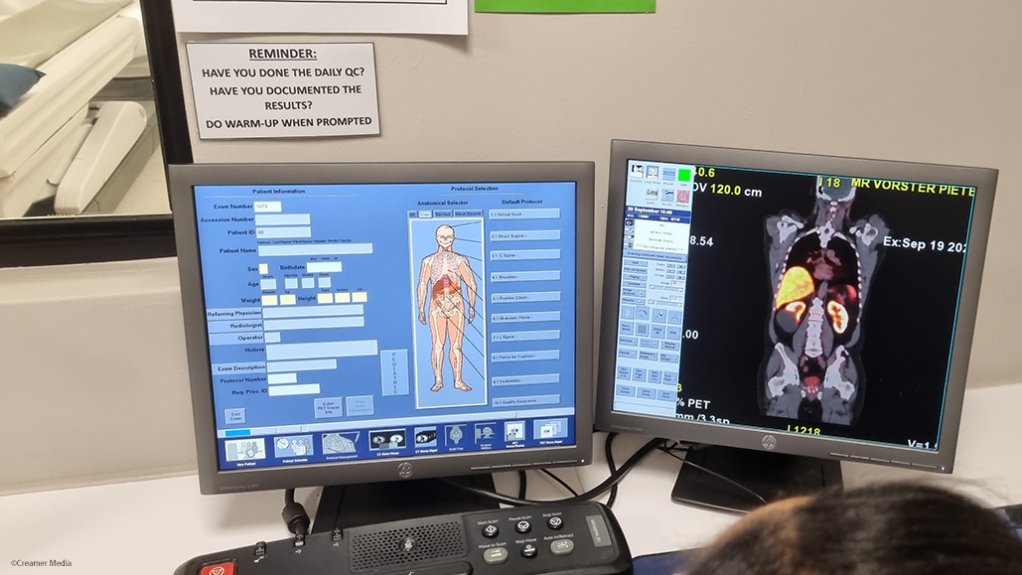
GE Healthcare CT/PET scanning machine at DRS in Alberton
Photo by Creamer Media's Marleny Arnoldi
PET scan imagery
Photo by Creamer Media's Marleny Arnoldi
Diagnostic Radiological Services (DRS) has unveiled its dedicated computer tomography/positron emission tomography (CT/PET) scanning facility neighbouring the Netcare Alberton Hospital, in Gauteng.
The facility comprises a dedicated reception, injection room and “hot lab” section, which is used to store and dose isotopes and other radioactive chemicals to detect diseases, as well as the world-class GE Healthcare CT/PET machine.
The machine was used for the first time on a patient in March, following the completion of the facility late in 2022.
GE Healthcare has a rich history of introducing new technology in South Africa, particularly in Gauteng.
GE nuclear medicine technologist Neil Lloyd explains that anatomical (CT) and functional (PET) scans traditionally occur separately; however, with the combination of the two, DRS is able to more accurately determine the extent of diseases a patient may have, and in a quicker timeframe.
The machine’s ultra-sensitivity enables the specialists to inject lower doses of radioactive chemicals, making it safer for patients and healthcare providers to use.
The type of isotopes injected into the patient depends on their suspected disease, as informed by oncologists, for example.
PET scanning uses a radioisotope tracer that is an analogue to glucose, called fluorodeoxyglucose, which accumulates within malignant cells owing to its high rate of glucose metabolism. Once injected with this agent, the patient is imaged on the whole-body PET scanner to reveal malignant lesions which may have been overlooked or difficult to characterise by conventional CT or other types of scans.
Lloyd says the CT/PET scanning machine can show, at a detailed level, where increased cell activity is taking place, be it inside the bone or glands of a patient.
PET scans can detect and stage most cancers, often before they are evident through other tests. Cancer cells show up “brighter” in the picture because they use more glucose than normal tissues.
This machine is the only one in the Johannesburg South region, with 25 of them located across the country at the moment.
A patient is typically scanned for 7 to 12 minutes, with the radioactive material starting to work itself out of the body within 110 minutes of injection – meaning patients do not have to isolate themselves following treatment.
The CT/PET imagery technology was the only one lacking in DRS’ portfolio, which made sense for the company to invest in one, as well as the fact that patients from the area were often travelling far and wide to the northern parts of Johannesburg and Pretoria for combined CT/PET scans.
GE country manager Marlon Burgess says precision healthcare, with more accurate diagnoses and targeted treatment, is becoming more important for oncologists and other specialists in the nuclear medicine value chain.
DRS practice manager Robert Souter adds that the CT part of the scan provides imagery to a submillimetre resolution, while the combination of CT and PET provides imagery to molecular level to see the function of cells.
DRS will in future look into theranostics, which involves the use of one radioactive drug to identify a disease and a second radioactive drug to deliver therapy to treat the main tumour and any metastatic tumours.
This technique represents a more personalised approach to cancer care that may improve patients’ experiences and treatment outcomes.
GE Healthcare and DRS are committed to providing more personalised care by helping healthcare providers “see more, see smaller, see clearly and see changes”.
Comments
Announcements
What's On
Subscribe to improve your user experience...
Option 1 (equivalent of R125 a month):
Receive a weekly copy of Creamer Media's Engineering News & Mining Weekly magazine
(print copy for those in South Africa and e-magazine for those outside of South Africa)
Receive daily email newsletters
Access to full search results
Access archive of magazine back copies
Access to Projects in Progress
Access to ONE Research Report of your choice in PDF format
Option 2 (equivalent of R375 a month):
All benefits from Option 1
PLUS
Access to Creamer Media's Research Channel Africa for ALL Research Reports, in PDF format, on various industrial and mining sectors
including Electricity; Water; Energy Transition; Hydrogen; Roads, Rail and Ports; Coal; Gold; Platinum; Battery Metals; etc.
Already a subscriber?
Forgotten your password?
Receive weekly copy of Creamer Media's Engineering News & Mining Weekly magazine (print copy for those in South Africa and e-magazine for those outside of South Africa)
➕
Recieve daily email newsletters
➕
Access to full search results
➕
Access archive of magazine back copies
➕
Access to Projects in Progress
➕
Access to ONE Research Report of your choice in PDF format
RESEARCH CHANNEL AFRICA
R4500 (equivalent of R375 a month)
SUBSCRIBEAll benefits from Option 1
➕
Access to Creamer Media's Research Channel Africa for ALL Research Reports on various industrial and mining sectors, in PDF format, including on:
Electricity
➕
Water
➕
Energy Transition
➕
Hydrogen
➕
Roads, Rail and Ports
➕
Coal
➕
Gold
➕
Platinum
➕
Battery Metals
➕
etc.
Receive all benefits from Option 1 or Option 2 delivered to numerous people at your company
➕
Multiple User names and Passwords for simultaneous log-ins
➕
Intranet integration access to all in your organisation










